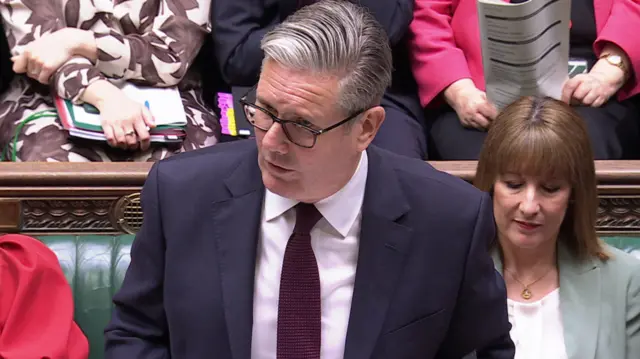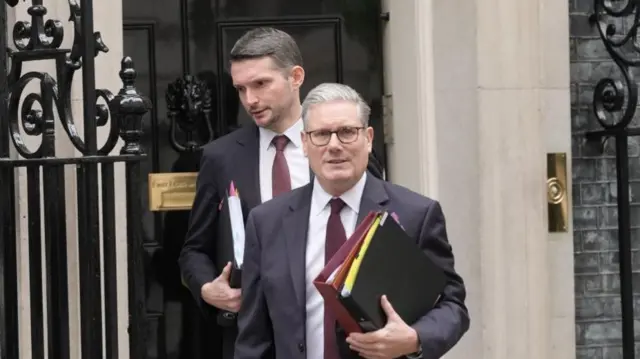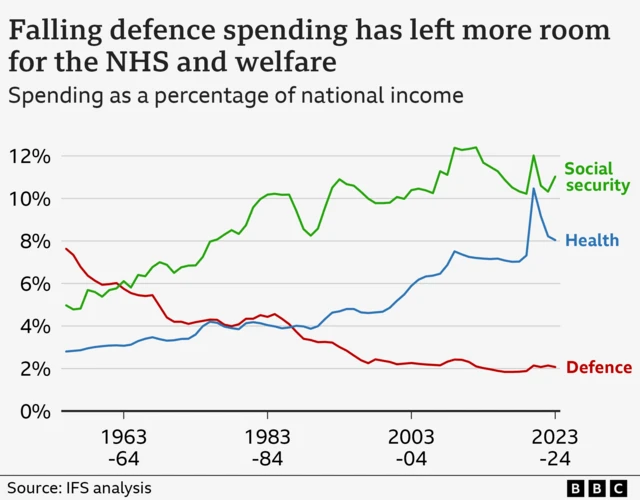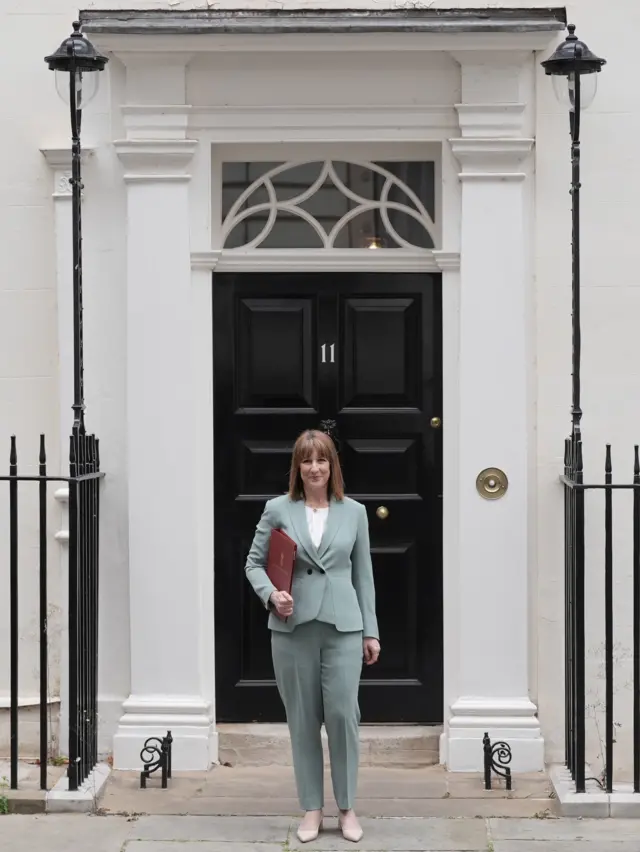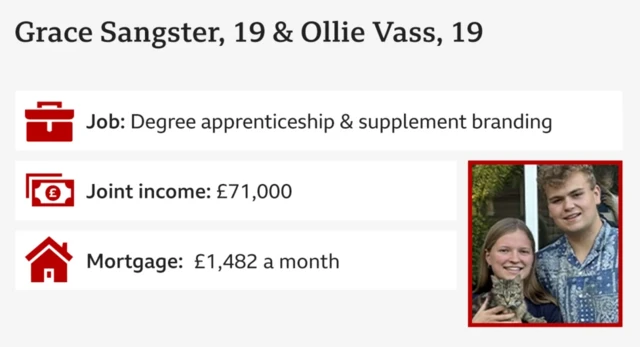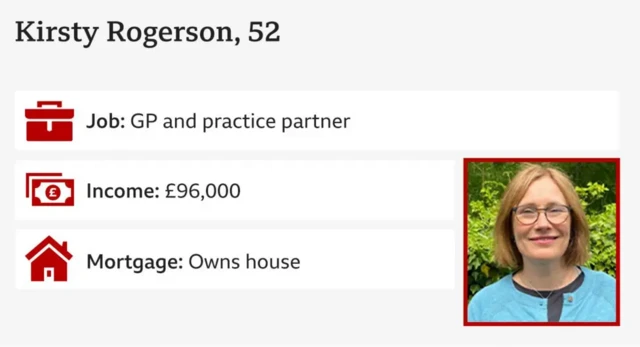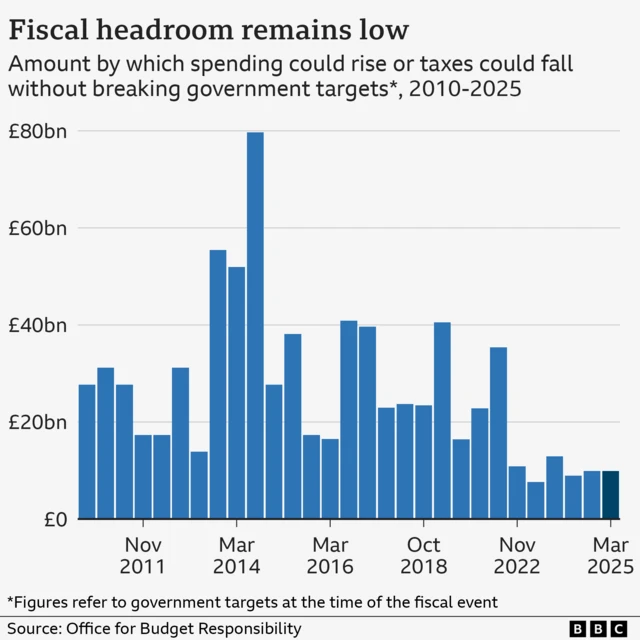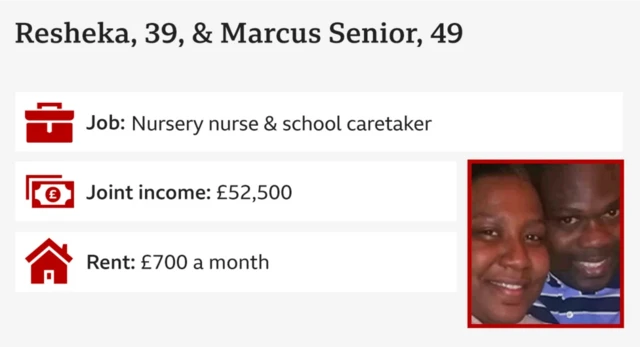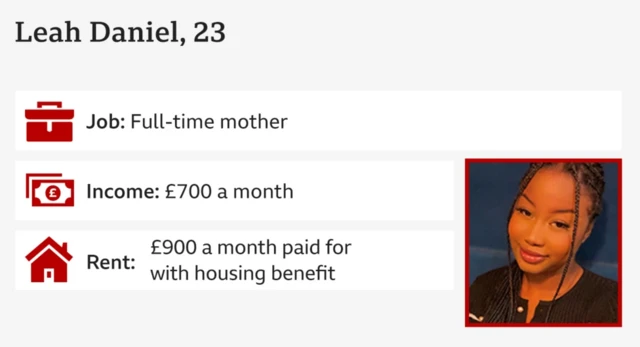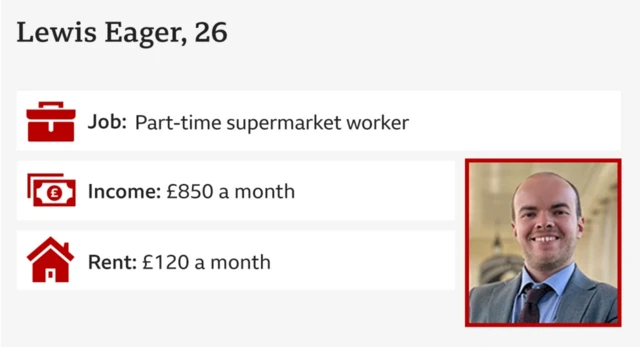'In what way are the books now balanced?'published at 12:12 BST 11 June
Badenoch contests Starmer's characterisation, saying the prime minister "must be talking about a different economy".
She says last year he was taking the winter fuel payment away - and that this year unemployment has increased every month.
The Tory leader asks: "In what way are the books now balanced?"
Starmer replies saying Badenoch "obviously missed the interest rate cuts" and other announcements including the recent strategic defence review and the Sizewell C nuclear plant.
The PM says former leader Liz Truss is now advising Nigel Farage's Reform UK party and "haunting the Tories".
"The Tories have learnt nothing," Starmer says.

